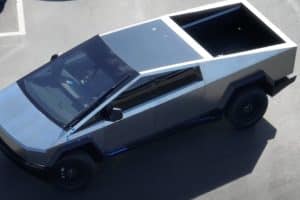- 💼 Tesla Semi has transported over 20,000 battery packs from Giga Nevada to Fremont Factory.
- 🌱 EPA’s Phase 3 rules aim to reduce greenhouse gas emissions from heavy-duty vehicles starting 2027.
- 🔋 Tesla Senior Manager praises all-electric trucks, stating they operate at lower costs compared to diesel trucks.
- 🚛 Tesla Vice President supports EPA’s proposal, emphasizing its role in accelerating the electrification of the trucking industry.
- 🏭 Tesla plans to increase production with a new manufacturing facility at Giga Nevada.
In recent years, the transportation industry has witnessed a significant shift towards sustainability and efficiency, driven largely by advancements in electric vehicle (EV) technology. Tesla, a pioneering force in the EV market, has been making waves with its Tesla Semi, a Class 8 electric truck designed to revolutionize freight transport. Let’s delve into Tesla’s recent achievements, industry impact, and future plans.
Tesla Semi: Powering Sustainable Logistics
The Tesla Semi has emerged as a game-changer in the realm of commercial transportation. With the ability to transport over 20,000 battery packs from the Gigafactory Nevada to the Fremont Factory, it showcases the practicality and efficiency of electric trucks in real-world scenarios. This milestone not only highlights the capability of the Tesla Semi but also underscores Tesla’s commitment to sustainable logistics solutions.
EPA’s Phase 3 Rules: Driving Environmental Progress
The Environmental Protection Agency’s (EPA) Phase 3 rules signify a pivotal moment in the fight against climate change. By aiming to reduce greenhouse gas emissions from heavy-duty vehicles starting in 2027, these regulations set a new standard for environmental responsibility in the trucking industry. Tesla’s endorsement of these rules reaffirms its dedication to combating climate change through innovation and compliance with stringent environmental standards.
Advantages of All-Electric Trucks
Tesla’s Senior Manager for Semi Truck Engineering, Dan Priestley, lauds the advantages of all-electric trucks over their diesel counterparts. Not only do they operate at lower costs, but they also demonstrate comparable performance, dispelling skepticism surrounding electric vehicles in commercial settings. As Tesla continues to refine its electric truck technology, the prospect of widespread adoption becomes increasingly promising.
Industry Support and Collaboration
Rohan Patel, Tesla’s Vice President of Public Policy and Business Development, echoes the sentiment of industry-wide support for EPA’s proposal. Emphasizing the role of pollution standards in accelerating the electrification of the trucking industry, Patel underscores the importance of collaboration between government agencies and private entities to drive sustainable change.
Scaling Up: Tesla’s Future Plans
Looking ahead, Tesla is poised to scale up its production capabilities with a new manufacturing facility at Gigafactory Nevada. This strategic move not only reflects Tesla’s confidence in the demand for electric trucks but also signals its long-term commitment to leading the charge towards a greener future in transportation.
In conclusion, Tesla’s achievements in the realm of electric trucks signify a paradigm shift in the transportation industry. With a focus on sustainability, innovation, and collaboration, Tesla is paving the way for a future where electric vehicles dominate the roads, ushering in a new era of clean and efficient transportation.





